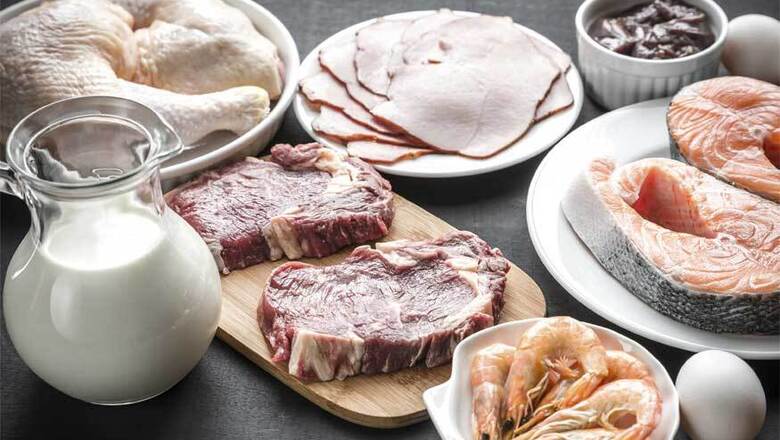
views
If, like many people, you would like to eat more healthily in 2018, it's worth considering the role of food in our psychological well-being. Tryptophan is an essential amino acid which can promote calm and relaxation.
Looking on the positive side, managing stress, staying in a good mood ... all these good resolutions we make at New Year can be helped by what we put on our plate.
With an awareness of which foods contains tryptophan, one of the eight essential amino acids, you can have a significant impact on your mood, nervous system and sleep.
Tryptophan plays an important role in the production of serotonin (the "good mood hormone"), melatonin (a sleep facilitator) and vitamin B3 (niacin) which helps to combat tiredness, depression and indigestion.
Your tryptophan intake should be sufficient (500 - 2000 mg per day is required) if you regularly eat meat (such as turkey, chicken, salami or liver), fish, dairy products or eggs.
Vegetarians can get tryptophan from brown rice, bananas, pumpkin seeds, almonds, cashew nuts, peanuts, brewer's yeast, parsley and soya.
However, if you try to boost your tryptophan levels by eating too much animal protein, it will be counter-productive as the tryptophan has to compete with the seven other amino acids to cross into the brain. Its assimilation will therefore be limited.
Conversely, eating carbohydrates along with protein can help tryptophan to reach the brain. This explains the anti-stress effect of eating food that is high in sugar. To avoid getting trapped in a vicious circle of rewarding yourself with sugary treats and putting on weight, it's better to opt for fruit and whole grains.
To keep your spirits high throughout the year, don't forget omega-3 fatty acids and vitamin B6, which are natural antidepressants that many of us are lacking in. Sources include nuts (such as walnuts, hazelnuts, and almonds), oily fish (such as salmon, sardines, and mackerel) and canola oil.















Comments
0 comment